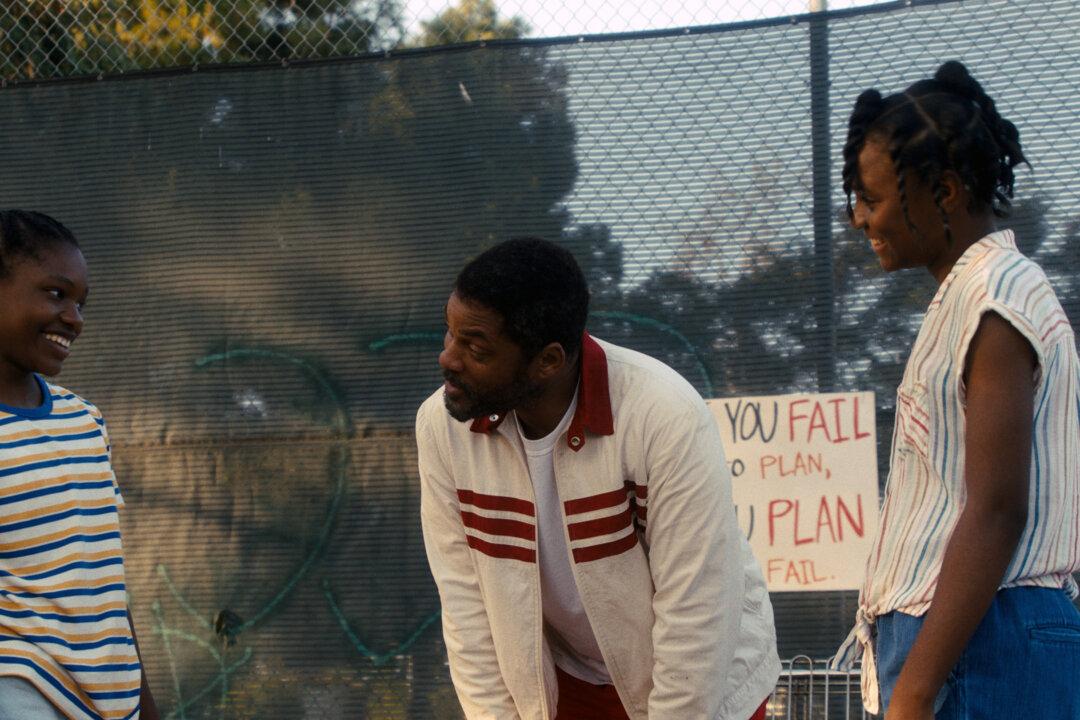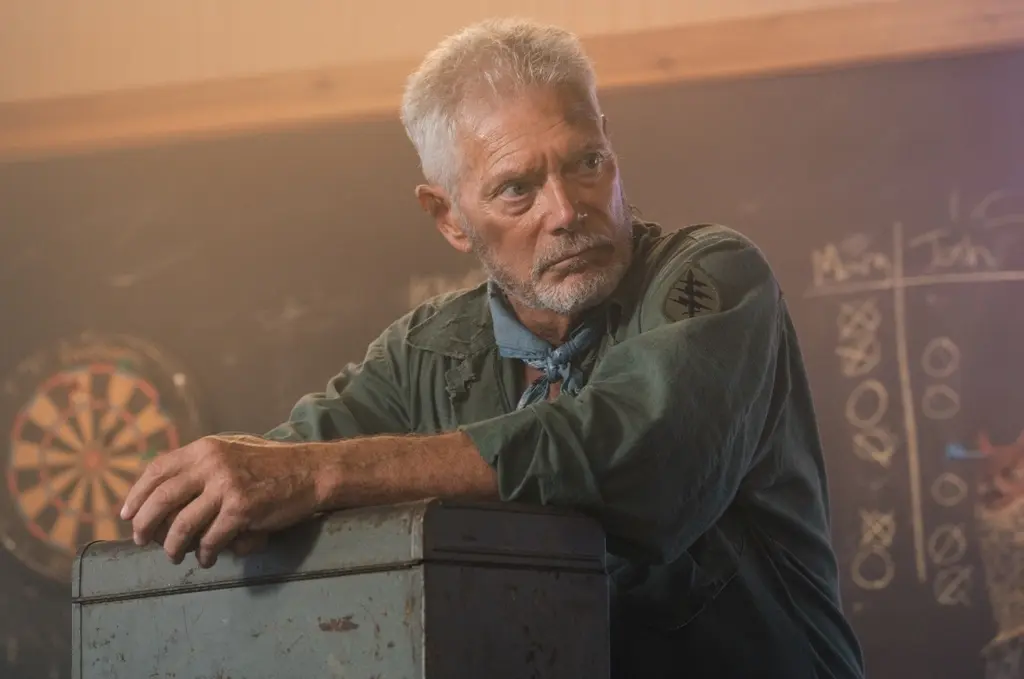The storybook ascension of tennis-playing sisters Venus and Serena Williams to the top of their sport is that of legend. Unlike the preteens of well-to-do families with limitless budgets, the younger Williams girls played on rundown courts in bad neighborhoods with hand-me-down equipment and—most importantly—no ability to pay for professional lessons.

(L–R) Serena (Demi Singleton), Richard (Will Smith) and Venus (Saniyya Sidney) Williams, in “King Richard.” Warner Bros. Pictures
|Updated:





